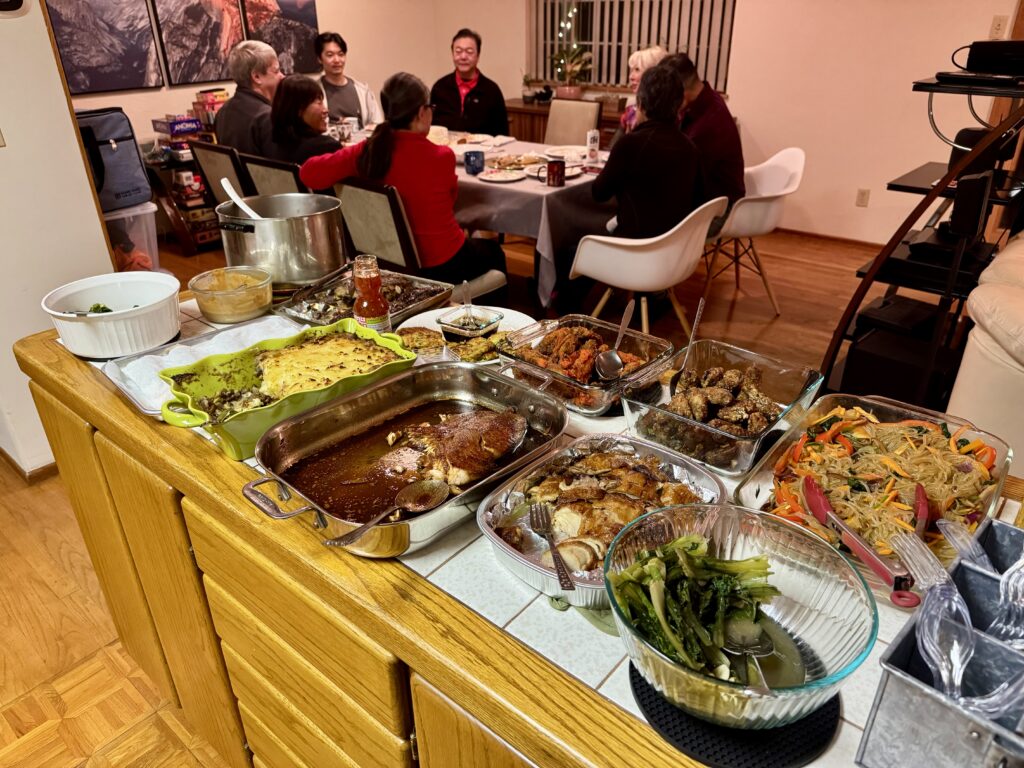How to discuss politics at Thanksgiving (or whenever)
“Well, now it feels like Thanksgiving,” Brian laughed.
We hadn’t talked about politics or the election up until that point, but the topic of transgender athletes came up, and I made what I thought was a common-sense statement on the subject. A couple of family members disagreed with me, and we had a (mostly) respectful debate about our positions.
Nothing was resolved, and we didn’t agree on much, but we did gain some clarity on where each of us stood. All things considered, I’m grateful for the conversation because it was (mostly) civil, and we ended the evening as we started it — a family that, differences and all, chooses to spend the holidays together.
I genuinely enjoy conversations about hot-button issues, but I’ve also learned they come with pitfalls — especially when having them with close family. I like to think I’m open-minded and can have a reasonable debate with people holding opposing viewpoints, but in recent years I’ve had my fair share of conversations that didn’t go as well as I’d hoped. Usually that means one of two things:
- I was too sensitive and took something personally when I should have been less emotionally attached, or
- I struggled to articulate my position clearly or explain the reasoning behind it.
One experience from my career helped reframe how I handle potentially difficult discussions. Years ago I had a boss who constantly peppered me with questions whenever I presented my forecasts. I was new to the job and was a bit taken aback with her style, but I did my best to defend my work. It was a pretty stressful environment, so after a while I would give in to her questioning and revise my forecasts to whatever she wanted. She was way more experienced than me, I thought, so why bother arguing? She noticed, and encouraged me to defend my assumptions and challenge hers. Why? Because the process of hashing out our differences often revealed insights neither of us had considered, leading to better decisions. That shift in mindset changed how I thought about those discussions. Instead of seeing them as stressful or adversarial, I began to treat them as opportunities to sharpen my thinking and learn from her perspective.
I think this lesson also applies to navigating political conversations. For example, a recent discussion with a friend about immigration pushed me to learn more about asylum laws and their impact on illegal immigration. The exchange broadened my understanding of the topic and gave me a more nuanced view of the issue.
So, how do you make sure conversations like this stay productive, even when you’re sitting across from someone who sees the world very differently? Here are some strategies I’ve found helpful:
- Find common ground. I’m convinced that we have way more in common than the media would have us believe. I also confess that at times, I’ve been way more focused on our differences than I should have been. Even if you fundamentally disagree with someone, it can help to defuse the tension if you say something like, “I agree this topic is worth discussing.”
- Ask open-ended questions. “How” and “what” questions are effective for understanding someone’s reasoning and clarifying their position. Keep in mind the goal is to learn, not interrogate.
- Keep an open mind. I think I struggle with this the most, as many issues are black and white for me. It’s easy to jump to conclusions when somebody
gives an uninformed hot takeshares an opinion that’s different than mine, so it’s important to allow for nuance and exceptions to the rule. If necessary, follow-up with research and acknowledge your own gaps of understanding. - Continually assess whether it’s a conversation worth having. I say “continually” because this is an ongoing process, not something you decide once. A litmus test for whether you should continue the conversation is if the other person is more interested in understanding than arguing. Maybe you reach the point where you have clarity but not agreement, and that’s enough.
- Choose your words carefully. I’ve learned the hard way that making extreme statements to emphasize a point can backfire, especially with friends who don’t share my political views. While I’m more mindful about being measured around people I don’t know well, sometimes I come across as more harsh than I intend to be. A good rule of thumb when you’re feeling defensive is to ask clarifying “how” and “what” questions, and to avoid starting sentences with “you” (try to start sentences with “I” instead).
I’m sharing these tips not because I’ve mastered the art of political discourse, but because I’m constantly trying to get better at it, and often need to remind myself of them too. These conversations aren’t easy and can be contentious even with the best of intentions, but when tackled with curiosity and respect, they can be incredibly rewarding.
This holiday season, or whenever the opportunity arises, don’t shy away from meaningful discussions. Maybe you won’t agree on everything, but you’ll likely gain insight, strengthen relationships, and maybe even learn something new. And that’s something to be thankful for.

I genuinely enjoying reading and seeing videos about your sailing adventure =)